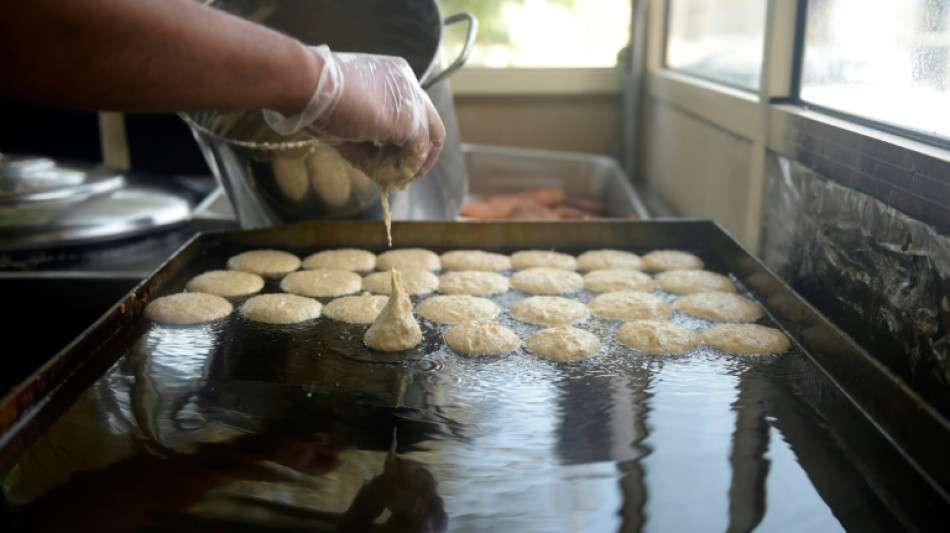

Bahraini artisans toil to preserve sugar-coated tradition
Bahrainis with a sweet tooth have long been spoiled for choice between a wide array of dessert franchises, but traditional confectioners still hold their ground, especially during Ramadan.
At the back of his modest shop in the capital Manama, Mohammed Gharib stirs a thick mixture of sugar, saffron and freshly blanched almonds, transforming it into a uniquely Bahraini version of the ubiquitous Middle Eastern dessert: halva.
"Bahrain became famous for its confectioneries by being a pioneer in this industry in the Gulf region," Gharib told AFP, adding that their popularity of its establishments "continues until today".
Clad in Bahrain's traditional "shemagh" headdress and white "dishdasha" robe, the 70-year-old runs one of the country's oldest confectioneries, named after its founder Hussain Mohammed Showaiter, who established it in 1850.
"Hussain Mohammed Showaiter was keen to develop this craft, and passed it on to his children and grandchildren," Gharib said.
As Bahrainis celebrate Ramadan along with the rest of the Muslim world, the holy month is a period of appreciation for traditional sweets.
For Mohammed al-Fardan, the familiar Bahraini confections remain a fixture on tables for the iftar meal, in which the faithful break their dawn-to-dusk fast.
"Their presence is a reminder of Bahrain's heritage and sense of hospitality," the 51-year-old banker explained.
Though the Gulf region has been swept by a deluge of fast food chains, Fardan is quick to point out that "modern sweets contain preservatives, unlike traditional confectionery".
- 'Main food' -
But while the preservation of heritage is at the heart of the confectioners' craft, they are not averse to innovating to appeal to a younger clientele.
Saleh al-Halwaji, who works in his family-owned shop, says: "My father used to work in confectionery and I used to help him after school.
"Today, we work in the same field with our own children," he said.
Halwaji says he "strives to evolve the sweets and keep up with the times while maintaining their popular character".
"We still make everything ourselves and perhaps that is what attracts so many of our customers, who come to buy sweets but also to watch us make them behind the glass," he said.
Dalal al-Shrouqi, an expert in Bahrain's popular heritage, says that "today, technology helps us disseminate everything we want to preserve of our popular heritage by making it known to future generations".
Shrouqi, who has written several books on her country's traditional cuisine, said that while innovative twists are popular, people still prefer "the sweets in their traditional form".
"Things evolve, but the original is still the basis."
P.Conti--IM




